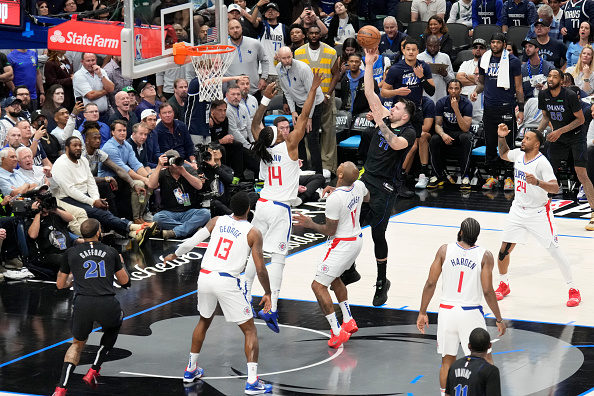Two times per week, we'll be breaking down a pertinent Bulls question for you all to chew in during the NBA's hiatus.
Past installments: What is Zach LaVine's ceiling?
Kris Dunn’s arc over the past calendar year has been something to behold.
As recently as last August, the Bulls were, by all accounts, actively shopping Dunn after a tumultuous spell as the team’s starting point guard in 2018-19.
But they found no takers, and the fourth-year guard from Providence went on to carve out a niche for himself as a defensive linchpin over the course of the 2019-20 season. His insertion into the Bulls’ starting lineup keyed a month-long stretch where the team boasted a top-two defense in the NBA. When he went down with an MCL sprain on Jan. 31, he led the NBA in steals. And in his absence, the Bulls’ defense absolutely cratered.
Before that MCL injury, Dunn’s value had never been higher. But with it, his offseason is in flux. Whenever the NBA’s free agency window opens, Dunn will be a restricted free agent with a qualifying offer of $4.6 million — he fell six starts short of meeting the current CBA’s starter-criteria, which would have inflated that figure to $7.1 million. (Though those figures now might be subject to change.)
The Bulls will, of course, extend that offer to Dunn. The question is whether they would entertain matching any offer sheet he might find elsewhere (our K.C. Johnson floated the Clippers as a possible team with interest) or hammering out an extension themselves.
There isn’t a ton of cap space around the league this summer, and if the current coronavirus-induced hiatus dings the cap any further, there could be less. But a reasonable $8-11 million AAV projection for Dunn puts him in the range of the non-taxpayer mid-level exception, which a number of teams will be able to flaunt.
NBA
Would the Bulls consider a multi-year extension with those parameters? Let’s weigh the pros and cons.
The pros: Dunn’s rare blend of length, tenacity, and vocality on the wing makes the Bulls’ aggressive, turnover-happy defensive schemes go. He’s beloved in the locker room, and he improved ancillary components of his offensive game this season; he got to and finished at the rim better than he ever has — 42% of Dunn’s looks came there (87th percentile for his position) and he finished 65% of them (83rd), per Cleaning the Glass — and proved capable as a lead ball-handler and distributor in spurts. You could do a lot worse than him anchoring a second unit as a defensive specialist.
But the cons loom: Dunn’s erratic 3-point shot caused major problems for the Bulls’ offense this season. Beyond a paltry 25.9% overall 3-point clip (2.2 attempts per game), defenses simply stopped guarding him from the outside for stretches this season. The Bulls’ offensive system is precarious enough without allowing opponents to deliberately muck up driving and cutting lanes with regularity. Further, with younger, less expensive ‘defensive energy’ guys to potentially lock up already on the roster (Shaq Harrison, Adam Mokoka), might the Bulls be able to replace a large percentage of Dunn’s production at a fraction of the investment?
It might be best to tread lightly with the latter calculation: Dunn’s defensive impact cannot be overstated. With him on the court this season, the Bulls defended at a rate of 103.6 points per 100 possessions and 110.4 with him off. For context: that’s roughly the difference between the second and 18th-rated defenses in the league. Had the Bulls’ record been a tad loftier, he might have had a legitimate All-Defense case — there simply are not many better on-ball defenders in the NBA, from a physical or mental perspective. Ask Trae Young or Paul George if you want proof of that.
Still, this team and organization are currently in a position where investing long-term in a guy so specialized may not be responsible. Without questioning Dunn’s work ethic, he just turned 26 and when he returns, he will be coming off a potentially significant knee injury. At some point, you are what you are as an NBA player. What Dunn brings is tangible and impactful, but unless legitimately sold on him as a foundational, long-term piece, keeping the books as clean as possible probably behooves the Bulls.
With all the above as background, the best-case scenario for the Bulls is a market not emerging for Dunn in a fraught cap environment and securing him for another year on that qualifying offer. In Dunn’s best interest is capitalizing on a year highlighted by revelatory defense and role acceptance by locking into a long-term commitment — whether that be in Chicago or elsewhere.
Time will tell if those interests will align in a marriage. If not, Dunn’s time with the Bulls will have been topsy turvy, but ultimately worth appreciating.
Click here to download the new MyTeams App by NBC Sports! Receive comprehensive coverage of your teams and stream the Bulls easily on your device.


